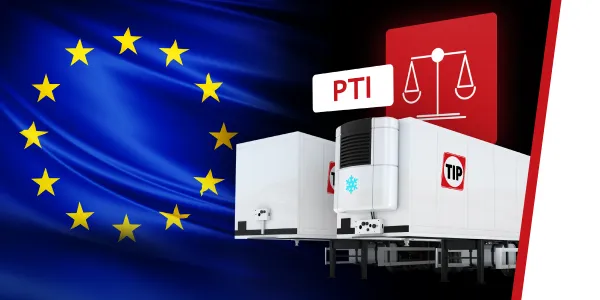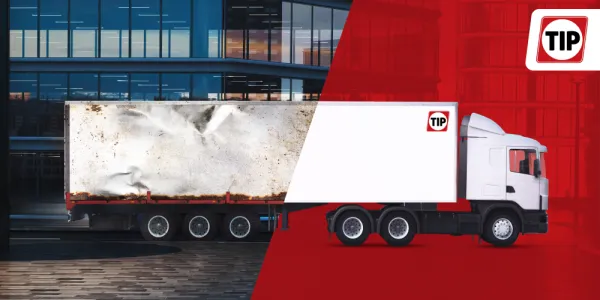Driving towards a greener future: Innovations in refrigerated transport
The transportation of perishable goods like food, medicine, plants, and chemicals requires the use of refrigerated vehicles, which have a significant environmental impact due to energy consumption and emissions. Addressing these challenges is essential to using greener energy and reducing waste, while maintaining the safety and efficiency of cold chain logistics.
In the effort to make refrigerated transport more sustainable, several solutions are being developed, including the usage of energy axles, solar panels, and charging plugs. In this article, we will explore these key sustainability developments, as well as the impact they have on the industry and the environment.

Charging plugs
This is a common method in private vehicles but still a rather new innovation for trailers. Charging plugs provide a way to recharge the refrigeration system while the vehicle is parked or loaded or unloaded, reducing the need for idling and energy consumption. Refrigerated trailer batteries are charged via a cable and a three-phase power connection to the grid. For a convenient accessibility, install charging sockets and plugs in optimal locations is needed, but also in loading and unloading places, and drivers' rest stops. To ensure reliability, it is essential for drivers to make a habit of manually connecting the battery to the grid. The key to success is ease of use and proper guidance. The challenge lies in finding the right balance between minimizing battery capacity and ensuring reliability, as higher capacity tends to increase cost.
At TIP, we take great pride in our recent accomplishment of launching a 100% electric reefer that utilizes charging plugs, which not only benefits the environment but also helps businesses become more competitive. As we continue to prioritize sustainability, we plan to expand the deployment of this technology to further drive positive change and make a meaningful impact in the industry. Learn more about our achievement here.
Energy axle
Energy axles are a type of trailer axle that generate energy through regenerative braking, reducing the energy consumption of the refrigeration system. This method allows refrigeration systems to run while the vehicle is in motion and charge built-in batteries for up to 90 minutes of cooling while stationary. The solution provides a more environmentally friendly and flexible outcome, reducing reliance on the grid and resulting in cost savings for cooling produce. This approach also aligns with goals for zero-emissions and better living environments.
Last January, we launched a pilot refrigerated trailer using this innovation. Its performance is still being tested but so far, results are promising. Explore our trailers with energy axle here.
Solar panels
The use of solar panels to charge batteries in the mobility sector holds tremendous potential, and ongoing examinations to optimize its efficiency will only help further its progress. Solar panels are installed on a trailer's top or sides and generate electricity to feed power to the batteries and extend the refrigeration running time. The solar integration is expected to provide an additional 9.8kW to the refrigeration unit, leading to fuel savings and reduced carbon emissions.
TIP is investigating the potentiality of this new solution with two other partners, Sunswap and Valoe. Stay tuned for more updates!
TIP’s commitment towards sustainability
At TIP, we believe that providing our clients with the best fleets is just one aspect of our responsibility. As a company, we are aware of the impact that our operations have on society and the environment. We recognize that it is not enough to simply offer the best fleets – we must also ensure that these fleets are sustainable and contribute to a greener future. With this in mind, we are dedicated to leading the way in driving the refrigerated transport industry towards greener logistics.
If you want to know more, read our whitepaper and get it touch!












